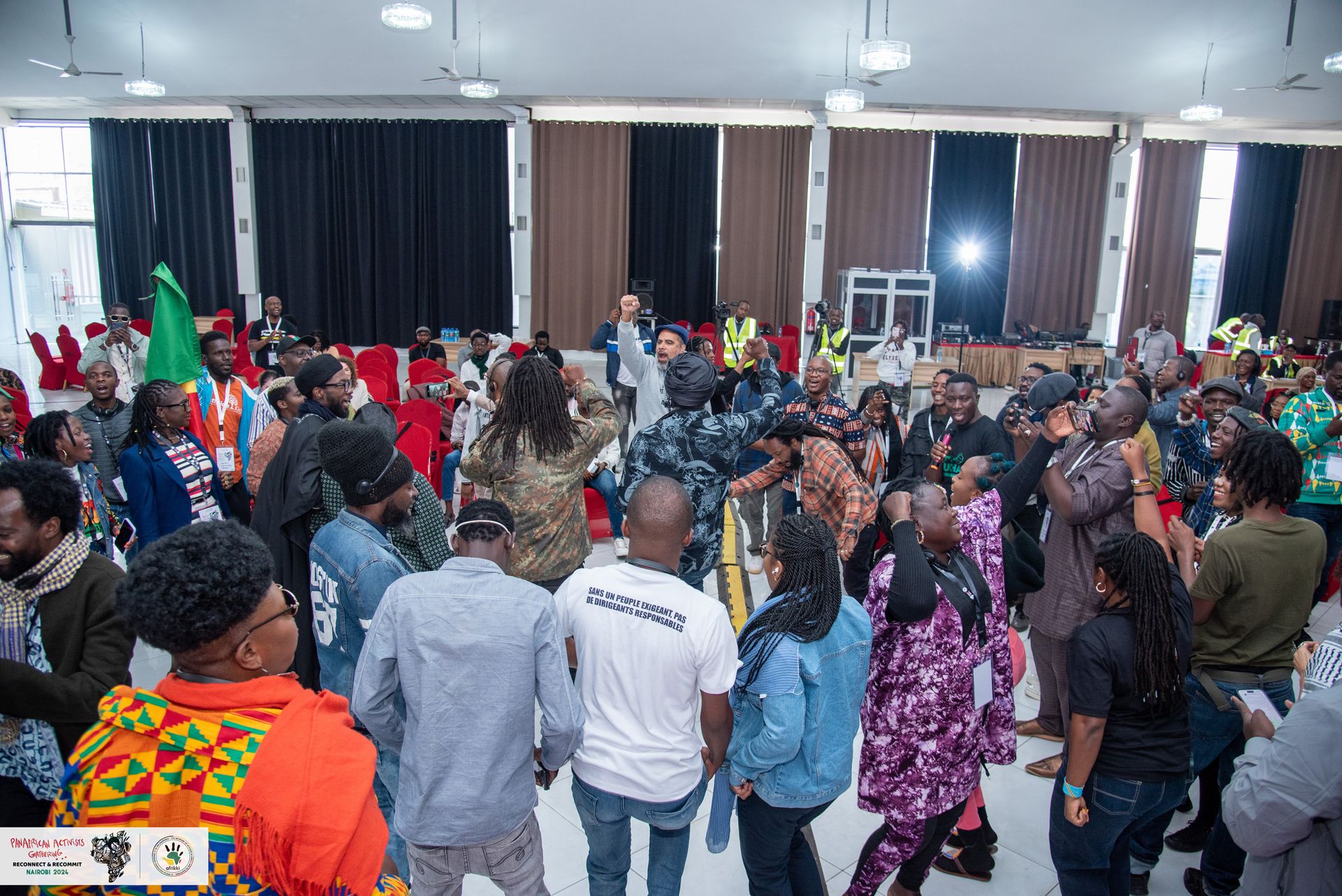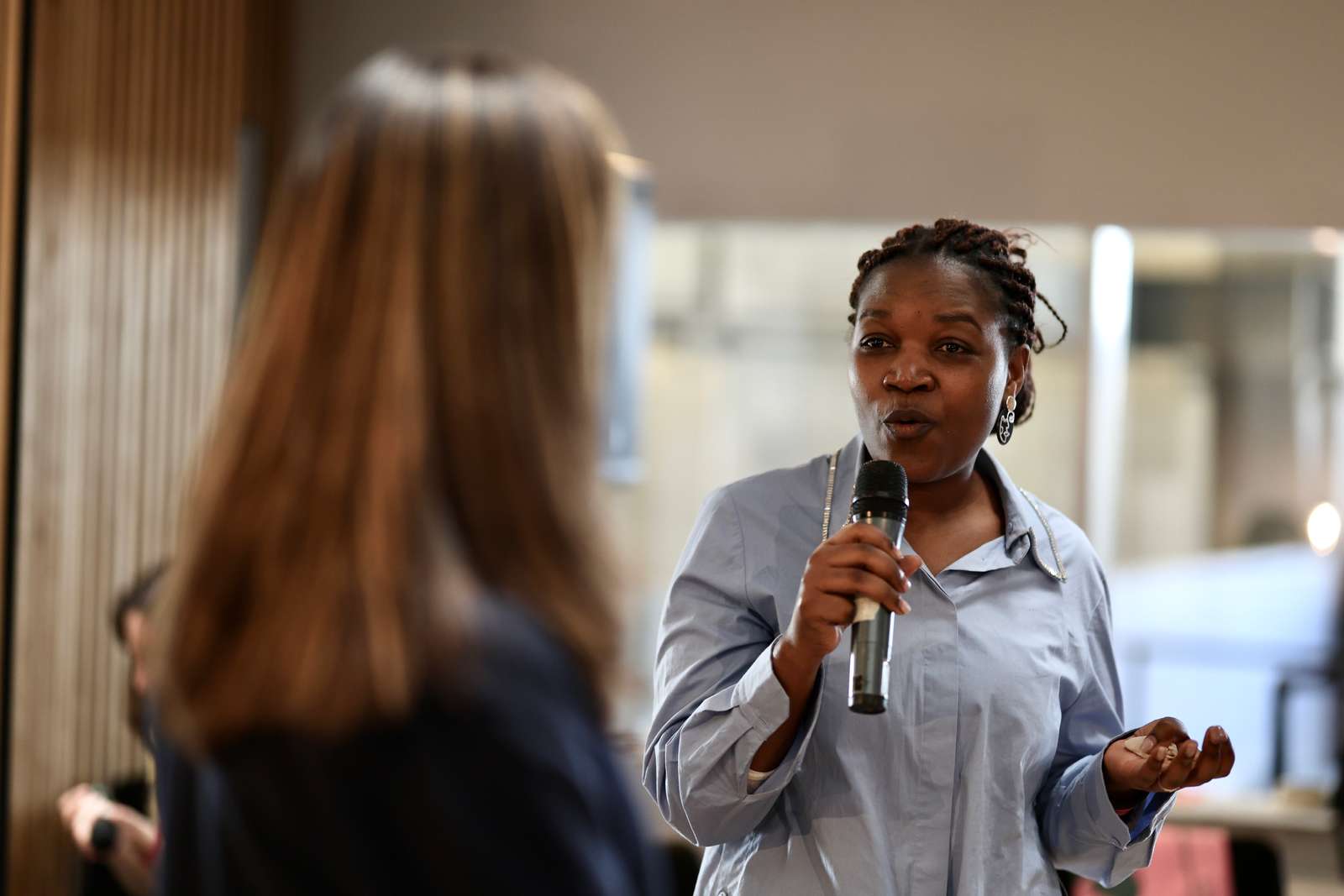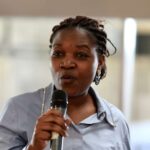Minds of the Movement
An ICNC blog on the people and power of civil resistance
by Micheline MwendikeJuly 02, 2025
Lisez cet article en français ici.
Sixty years after independence, African societies are still marked by the burdens of colonization and the dictatorships that followed. The wave of independence in African countries from the 1960s to the 1980s was the result of the collective struggle of people more aware of the injustices suffered by their fellow citizens. The shared desire to see African populations flourish and benefit from the opportunities offered to any human group managed with dignity and respect for their humanity gave rise to the development of Pan-Africanism, a political movement that swept across the continent.

Pan-African Activist Gathering, Nairobi 2024. Credit : Afrikki.
African peoples continue to struggle. However, current liberation struggles remain confined to their respective geographic spaces, to the point of causing the continent to lose its revolutionary consciousness. In response to this challenge, social movements in Africa established Afrikki. This synergy of social movements and activists aims to bring together the dynamics of social transformation in a pan-African space where they can pool their efforts and strengthen their actions.
Together, we are stronger
The idea for Afrikki was born in 2012, when activists from different countries became aware of the similarities in their struggles, fought in diverse and isolated national contexts. Leaders of the Senegalese movement Y’en a marre (Fed Up) and those of citizen movements in the Democratic Republic of Congo (DRC), such as LUCHA (Lutte pour le changement), began discussing how to join forces to carry out joint actions. In 2013, the citizen movement Balai Citoyen (Citizen Broom) joined these informal discussions. Today, 30 African countries are represented within the Afrikki network. An operational team implements the network's programs. It is supported by a steering committee made up of activists from eight countries emanating from the general assembly.

The author co-presents during the People Power Conference in Copenhagen, April 2025. Credit: ActionAid Denmark.
Afrikki network members have diverse backgrounds and commitments. Some focus on democracy, others on climate change, and still others on controversial topics such as political education, the defense of LGBTQI+ minorities, or income-generating activities. Some struggle in countries ruled by dictators, while others benefit from effective justice. When it comes to responses, the diversity of topics and contexts generates specific responses for each organization. In some cases, support may take the form of a statement or a letter addressed to institutions. In other cases, Afrikki amplifies voices by sharing messages on its network or organizing specific online or in-person meetings.
Pan-Africanism, concretely
In March 2015, a group of Senegalese and Burkinabé activists traveled to Kinshasa to support Congolese activists in their fight for democracy. During a press conference, they were arrested, tortured, and imprisoned in secret locations before being expelled from the country. Accused of endangering state security, the Congolese activists arrested alongside them were imprisoned for 18 months. They faced the death penalty. This support from African activists gave transnational resonance to the fight against the former Congolese head of state's third term, which the Congolese people ultimately won.
Furthermore, through the Popular University of Civic Engagement (UPEC), Afrikki's largest and most prestigious activity, the organization has trained thousands of people. Held every two years since 2018, it provides a forum for all those interested in activism in Africa, where they can discuss the past, future, and challenges of activism on the continent and in the African diaspora.
Afrikki encourages, promotes, and organizes physical meetings between activists. During these face-to-face exchanges, constructive discussions, new ideas, and a better understanding of contexts emerge. Activists who met in person are able to provide each other with determined support later on, in times of need. Campaigns to denounce or demand immediate release are seen to gain momentum when the individuals involved have already participated in the network's activities. Moreover, networking benefits more those who know how to build strong and enriching human connections with activists, researchers, and human rights actors on the continent and around the world.
On a more personal note
Afrikki is much more than a space for solidarity, action, and training. The network brings activists out of their solitude. They often fight for dreams and take considerable risks. In their communities, they are considered utopian, chronically dissatisfied, or perpetually angry. Within the Afrikki network, they find people who are like them, understand them, support them, and with whom they can discuss freely and respectfully.
On a more personal note: I find a lot of my identities grouped together when I am with Afrikki. I no longer make much distinction between being a mother and being an activist, because within the network I'm also a mother; I can no longer not be one. I'm also an activist, because I can no longer not be one. I'm proud to say that I've been involved in nonviolent struggle for over 10 years, and this experience is a resource for the network. It's only with Afrikki that this is possible, because it's a network of activists. When you're a woman, when you get married, when you have children, life changes. My life changed with these steps, and I see the world very differently now. Meeting other women, other men like me, warms my heart every day. They understand this change. Within Afrikki, I find a perfect coherence between my different identities... and the strength to carry on.

Micheline Mwendike
Micheline Mwendike is an influential Congolese activist and co-founder of the nonviolent citizen movement LUCHA (Lutte pour le Changement). Also a writer, she is the author of La Guerre a échoué (not translated), a major work chronicling the history of Goma and the beginnings of the nonviolent struggle. It is considered one of the most widely read books by Congolese activists.
Micheline Mwendike est une activiste congolaise influente, co-fondatrice du mouvement citoyen non-violent LUCHA (Lutte pour le Changement). Également écrivaine, elle est l’auteure du livre La Guerre a échoué, une œuvre majeure qui chronique l’histoire de Goma et les prémices de la lutte non-violente, et qui est considérée comme un des livres les plus lus par les activistes congolais.
Read More